In the ever-evolving landscape of construction and real estate, building inspection play a crucial role in ensuring the safety, compliance, and longevity of structures. As we venture into the future, the integration of cutting-edge technology is reshaping the traditional methods of building assessments. This paradigm shift not only enhances the efficiency of inspections but also opens up new possibilities for more comprehensive and accurate evaluations. Let’s delve into the exciting prospects that technology brings to the realm of inspections for buildings.
1. Robotics Revolutionizing On-site Inspections
One of the most groundbreaking developments in building inspections is the use of robotics. Drones equipped with high-resolution cameras and sensors can navigate through complex structures, capturing detailed images and data that were once challenging to access. This not only expedites the inspection process but also reduces human risk in assessing hard-to-reach areas, such as roofs and facades.
2. Artificial Intelligence (AI) for Data Analysis
Artificial Intelligence is transforming the way we analyze and interpret inspection data. AI algorithms can process vast amounts of information, identifying potential issues and patterns that might go unnoticed by the human eye. This predictive analysis allows inspectors to address problems before they escalate, minimizing maintenance costs and ensuring the structural integrity of buildings over time.
3. Virtual Reality (VR) Simulations for Pre-Inspections
Virtual Reality is making waves in the pre-inspection phase, offering a simulated environment for inspectors to assess potential structural issues before setting foot on-site. This not only streamlines the planning process but also provides a more comprehensive understanding of the building’s condition. VR simulations can simulate various scenarios, helping inspectors anticipate challenges and plan their approach more effectively.

4. Internet of Things (IoT) Sensors for Real-time Monitoring
The integration of IoT sensors allows for real-time monitoring of a building’s vital parameters. These sensors can detect changes in temperature, humidity, and structural movement, providing instant alerts if abnormalities are detected. This proactive approach enables building owners to address issues promptly, preventing potential disasters and prolonging the lifespan of the structure.
5. Mobile Apps for Streamlined Inspections
Mobile applications are becoming invaluable tools for building inspectors. With user-friendly interfaces and advanced functionalities, these apps facilitate the collection and organization of inspection data. Inspectors can easily capture images, input findings, and generate comprehensive reports on-site, reducing paperwork and expediting the overall inspection process.
Conclusion
As we step into the future, the marriage of technology and Building Inspection promises a revolution in how we evaluate structures. From drones capturing detailed images to AI analyzing complex data, each innovation contributes to more accurate and efficient assessments. Embracing these technological advancements not only enhances the capabilities of inspectors but also ensures that buildings are safer, more durable, and meet the highest standards of compliance. The future of inspections for buildings is undeniably intertwined with the limitless possibilities that technology brings, shaping a smarter and more resilient construction industry.


Pingback: Beyond the Checklist: Mastering the Art of Pre-Purchase Building Inspection - Alert Building Inspection Services